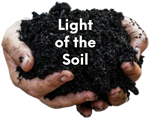-
Dehydrated Food Waste for Composting: Dehydrated food waste products are slightly acidic and have high nutrient content, making them not suitable for direct use as a fertilizer. However, when composted, they can overcome limitations such as phytotoxins and salinity, making them beneficial for plants (Khalida et al., 2022).
-
Compost Tea from Dehydrated Waste: Compost teas made from composted dehydrated food waste can act as a sustainable alternative to synthetic fungicides and promote plant growth. They have been shown to positively affect plant health and soil quality (Morales-Corts, Pérez-Sánchez, & Gómez-Sánchez, 2018).
-
Improving Soil Quality and Plant Health: The application of compost-based teas, including those made from dehydrated food waste, to soil and plants can improve soil quality and plant health by providing essential nutrients and suppressing soilborne pathogens (De Corato, 2020).
-
Value in Soil Health and Crop Productivity: Dehydrated food waste products, when used as soil amendments, have shown potential in improving soil health and crop productivity. However, the application rates need to be optimized to avoid negative effects such as phytotoxicity or anoxia (O’Connor et al., 2021).
In conclusion, dehydrated food waste, when composted and used as an additive in compost tea, offers a sustainable solution for waste management and agricultural enhancement. This approach supports the circular economy by recycling nutrients back into the soil, promoting plant health, and potentially reducing the need for synthetic fertilizers.
